Publications
Articles, publications, books, tools and multimedia features from the U.S. Institute of Peace provide the latest news, analysis, research findings, practitioner guides and reports, all related to the conflict zones and issues that are at the center of the Institute’s work to prevent and reduce violent conflict.
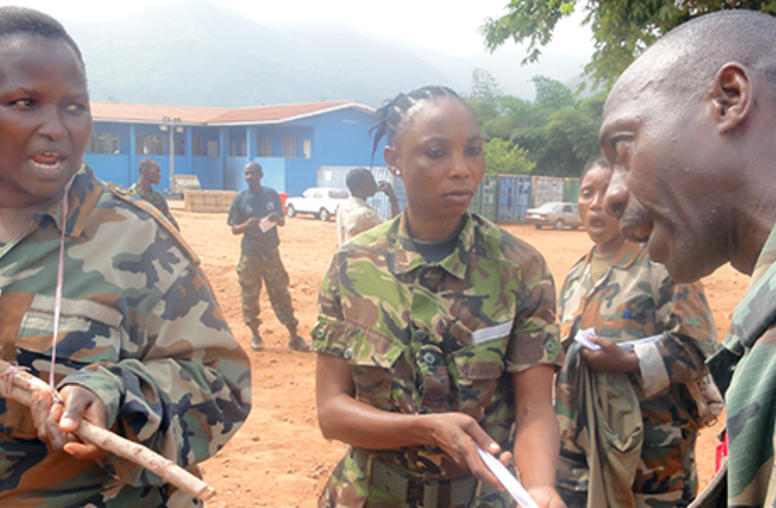
Sierra Leone Sends Women Peacekeepers to Somalia
Sierra Leone is demonstrating that it understands the important role women can play as peacekeepers. Half of the 50 Sierra Leone military personnel participating in a recent workshop by USIP on negotiations and communication in peacekeeping were women, an important development considering the unit will be deployed in Somalia.
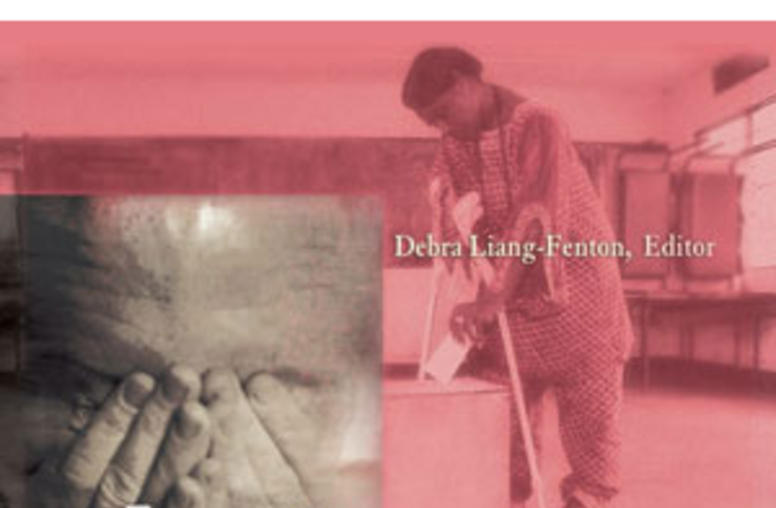
Implementing U.S. Human Rights Policy
Since the 1970s, the promotion of human rights has been an explicit goal of U.S. foreign policy. Successive presidents have joined with senators and representatives, hundreds of NGOs, and millions of ordinary citizens in deploring human rights abuses and urging that American power and influence be used to right such wrongs.
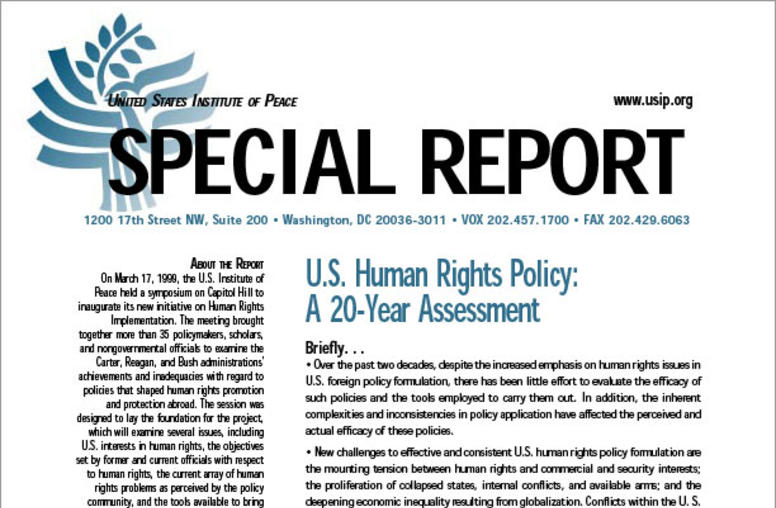
U.S. Human Rights Policy: A 20-Year Assessment
Summary Over the past two decades, despite the increased emphasis on human rights issues in U.S. foreign policy formulation, there has been little effort to evaluate the efficacy of such policies and the tools employed to carry them out. In addition, the inherent complexities and inconsistencies in policy application have affected the perceived and actual efficacy of these policies.
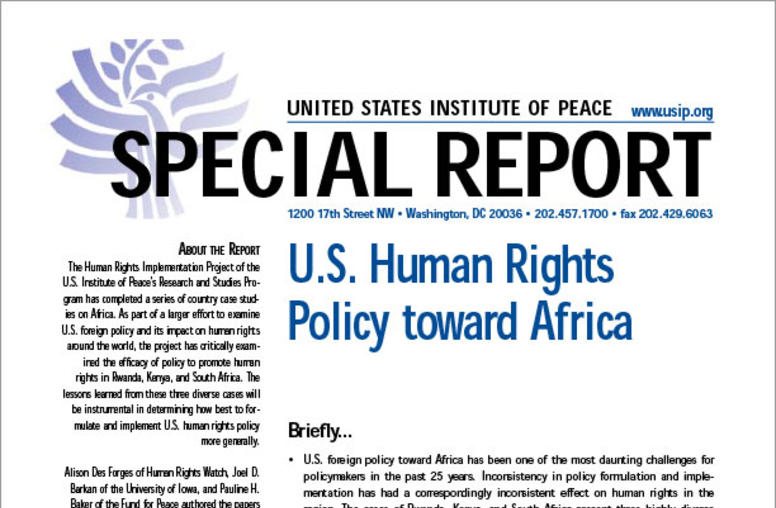
U.S. Human Rights Policy toward Africa
The Human Rights Implementation Project of the U.S. Institute of Peace's Research and Studies Program has completed a series of country case studies on Africa. As part of a larger effort to examine U.S. foreign policy and its impact on human rights around the world, the project has critically examined the efficacy of policy to promote human rights in Rwanda, Kenya, and South Africa. The lessons learned from these three diverse cases will be instrumental in determining how best to formulate an...
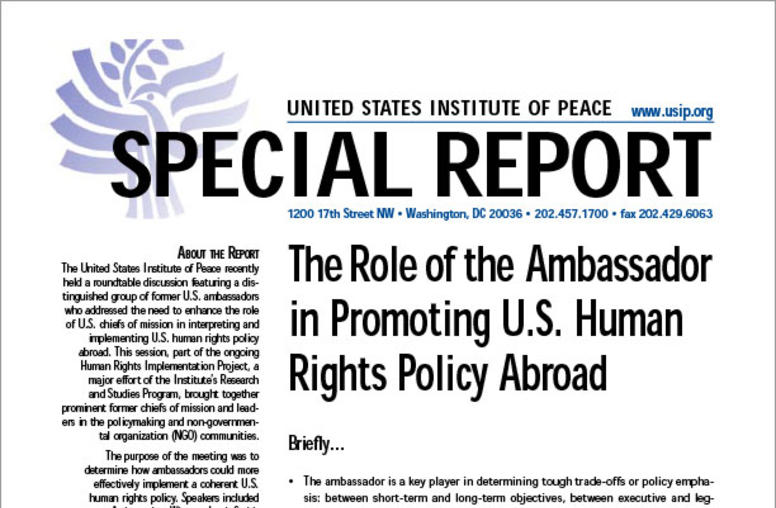
The Role of the Ambassador in Promoting U.S. Human Rights Policy Abroad
Summary The ambassador is a key player in determining tough trade-offs or policy emphasis: between short-term and long-term objectives, between executive and legislative priorities, between strategic interests and specific human rights concerns, between public and private diplomacy, between coercive and cooperative approaches, and between unilateral and multilateral approaches to specific problems.
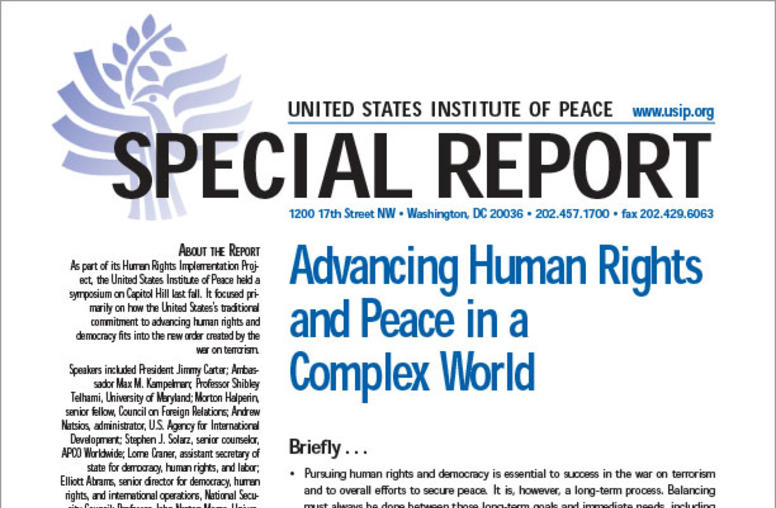
Advancing Human Rights and Peace in a Complex World
Summary Pursuing human rights and democracy is essential to success in the war on terrorism and to overall efforts to secure peace. It is, however, a long-term process. Balancing must always be done between those long-term goals and immediate needs, including ending the terrorist threat. Democracy, a pillar of respect for the rights and value of each individual, remains key to obtaining lasting peace and a resolution to a number of scourges that face the world today, including terrori...
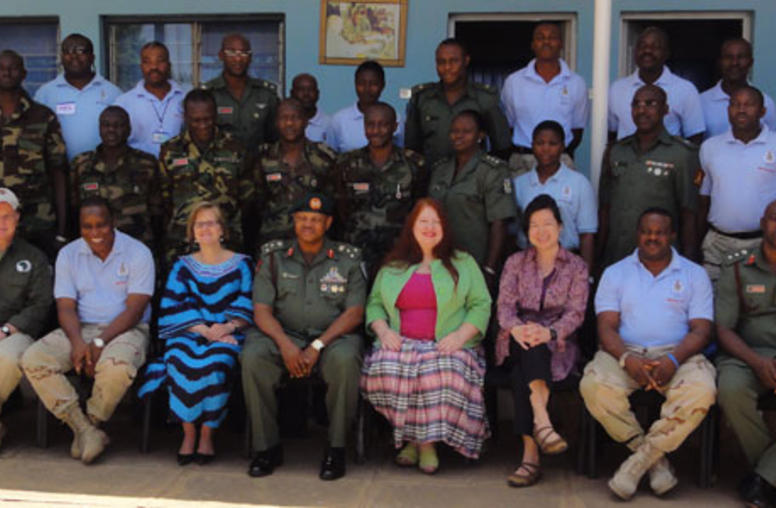
USIP Does "Peace Multiplication" in Nigeria
United States Institute of Peace trainers in March completed a five-day exercise in Nigeria for Nigerian Army peacekeepers who are preparing to deploy across the continent for a host of missions.
On the Issues: Human Rights and Peacebuilding
USIP has supported over 300 products, projects, and activities related to human rights and peacebuilding. From grants to fellowships, from training to education, from working groups to publications, the Institute strives to encourage more practice and scholarly work on the issue of human rights, and seeks to deepen understanding of the role human rights play in conflict and in peace.